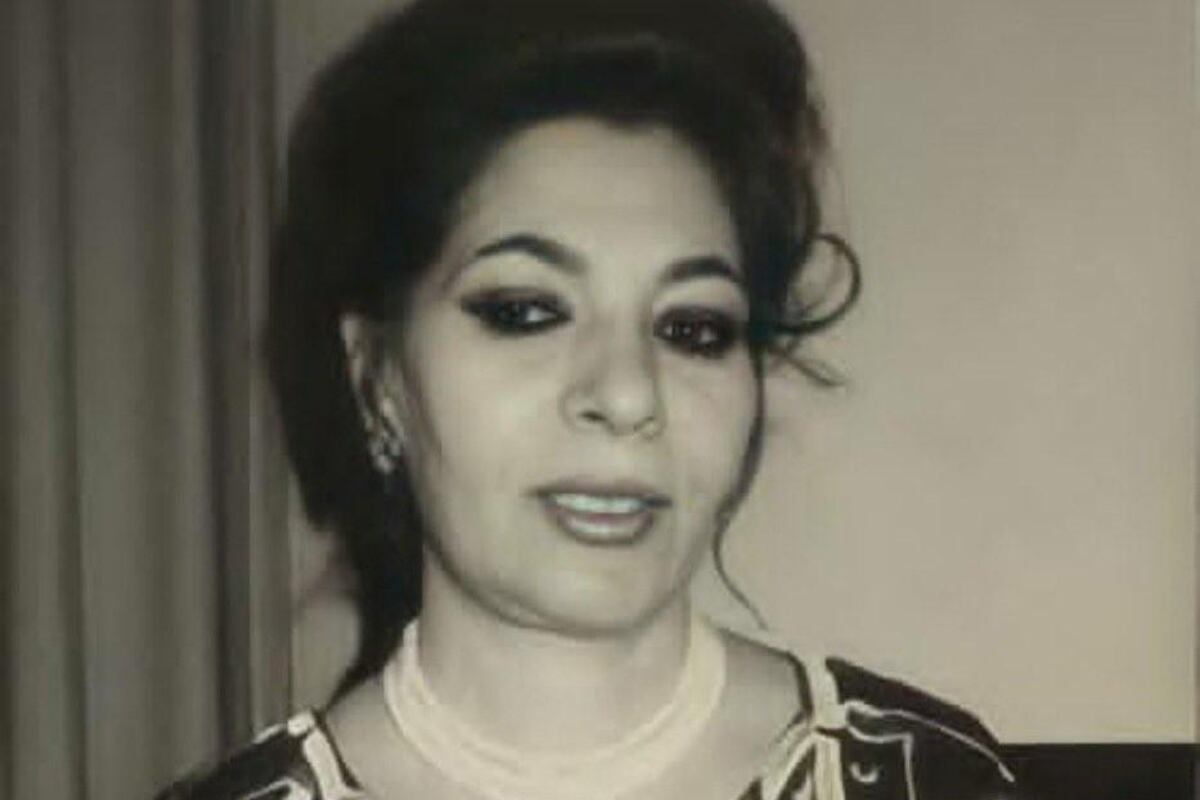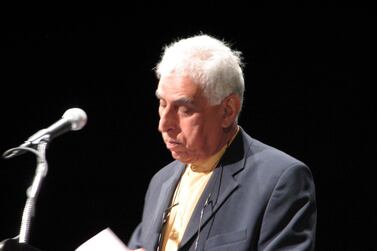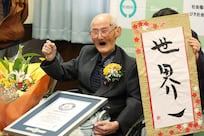Lamia Amara, one of Iraq's most revered poets, died on Friday in a California hospital after an illness.
She was 92.
A writer, columnist and cultural ambassador, Amara was known as one of the leaders of the Iraqi literary scene in the 1940s and a pioneer of the Arabic form of free verse poetry.
She was renowned for her poetry exploring social aspects of Iraq collected in compilations including The Empty Corner (1960), They Call Him Love (1972) and 1980's Had the Fortune-teller Told Me.
Her death is another blow for Iraqi culture after poet Saadi Youssef died aged 87 in London last week.
News of Amara's death spread across social media and was followed by tributes from Iraq's leadership.
"We bid farewell to the great poet Lamia Amara," Iraqi President Barham Salih wrote in a tweet that was accompanied by a portrait of Amara.
"We ask God's forgiveness for her soul and patience for her generous family and her loved ones.”
نودّع الشاعرة الكبيرة لميعة عباس عمارة، في منفاها، ونودّع معها أكثر من خمسة عقود من صناعة الجمال، فالراحلة زرعت ذاكرتنا قصائد وابداع ادبي ومواقف وطنية، حيث شكّلت عمارة علامة فارقة في الثقافة العراقية، في العاميّة والفصحى. نسألُ الله المغفرة لروحها والصبر لأسرتها الكريمة ومحبيها. pic.twitter.com/A9fTJIf4l8
— Barham Salih (@BarhamSalih) June 18, 2021
Iraqi Prime Minister Mustafa Al-Kadhimi released a statement of condolence through the Iraqi News Agency.
“The Iraqi people mourn the departure of the great Iraqi poet, Mrs Lamia Abbas Amara,” he said.
“With this painful departure, an Iraqi palm tree has left our world, but it left rich shadows of wonderful poetry and an unforgettable contribution to Iraqi culture that successive generations will remember with pride and reverence.”
رئيس الوزراء مصطفى الكاظمي ينعى الشاعرة العراقية الكبيرة لميعة عباس عمارة pic.twitter.com/0YJAXmPqRW
— شبكة الإعلام العراقي (@iraqmedianet) June 18, 2021
Iraq Minister of Culture Hassan Nadhem praised Amara's contribution to the country's literary landscape.
“She was distinguished by her transparent poetry, deep passion and great love for her country and her people, despite her long forced separation from the homeland,” he said.
“She was a unique voice among many shaping the modernity of the Iraqi poetic scene.”
An Arab literary pioneer
Born in Baghdad in 1929 and raised in the central district of El Kureima, Amara was a member of Iraq's Mandaean religious minority.
She came from a family of creatives and craftsmen. Her uncle was gold and silversmith Zahron Ammar, and her nephew the poet Abdul Razzaq Abdul Wahed.
Amara began writing at an early age and published her first poem at age 14 in Al Sameer, a in New York founded by Lebanese poet Elia Abu Madi.
Such was his enthusiasm for the piece, Abu Madi wrote an accompaniment and declared Amara a talent to watch.
لميعة عبّاس عمارة، النّوْرَسَة العراقية المُهاجرة قَسْرًا منذ عام 1978،والمقيمة في جنوب ولاية كاليفورنيا،بعيدا عن العراق المَشْغوفة به،هي صوت الشّعر العراقيّ المُهاجر إلى أمريكا.
— شهد علي (@shoso209) June 18, 2021
ماهذه البلاد التي تهجر جميع ابنائها ياوطني حتى الذين يعيشون على ارض الوطن غرباء💔.#لميعة_عباس_عمارة https://t.co/BswW9k59La
Her literary passions were further explored during her time at Dar Al Muallam Al Aliyah, a former college now known as the University of Baghdad.
While Amara studied to be an educator it was through meeting groups of compatriots and fellow future poets, including Badr Shaker Al-Sayyab, Nazik Al-Malaika and Abd al-Wahhab al-Bayati, that she dedicated her life to literature.
وفاة الشاعرة العراقية #لميعة_عباس_عمارة 🇮🇶
— هاجــر (@hjr_aldosarye) June 18, 2021
بغداد، تائهة ٌ أنا حيرا
من بعدِ صدركِ لم أجدْ صدرا ..
لا أمسي، لا تاريخَ لي فأنا
ممحوّة ٌ من عالمي قسرا .. pic.twitter.com/mSbSx4hkSK
Through spirited debates and competition, this group of poets went on to lead Shi'r Al Hurr, an Arabic version of the freewheeling and conversational free verse poetry movement, which traces its roots to France in the early 19th century.
Celebrating the Iraqi dialect
The freedom found within the Shi'r Al Hurr went on to inform the boundless nature of Amara's writing.
She was a lover of all facets of the Arabic language, with poetry and prose written in conversational, classical colloquial dialect.
However, it was the Iraqi folk genre of poetry she felt an affinity with the most.
She credited the form for allowing her to celebrate the dynamism of the Iraqi dialect and fostering a deeper connection with her audience.
An example of this is I Am Iraqi.
First performed in the 1980s as part of the Al Mirbad Poetry Festival in the Iraqi port city of Basra, the poem remains Amara's most popular work and has featured in concerts by Iraqi singer Kadim Al Sahir.
"Do you smoke? No. Do you drink? No. Do you dance? No? Then who are you and what makes you? I am the one who sees me," the poem opens, before ending with: "So, what is that draws your legs to my place? Oh, you expert on women?"
Amara also represented Iraqi literature as a board member of the Union of Iraqi Writers between 1963 and 1975, and spent two years as Iraq's Unesco representative until 1975.
Amara fled Iraq and moved to the US after Saddam Hussein seized power in 1979.
‘I am Iraqi women’
On a 2009 visit to the Lebanese capital, Beirut, Amara sat for an interview with Dubai broadcaster Al An TV.
While lamenting the carnage of Iraq at the time, she said her love for her homeland was still expressed through her pen.
"Through my work I represented an Iraqi woman, an Iraqi mother, a lover from Iraq and a devotee from Iraq," she said.
"Any type of person in Iraq I have written about. I look at it similar to having an album of photographs. They may feature different settings but there is one face in there and that's mine.”
Amara said she was also satisfied with her and colleagues' contributions to Iraqi society and culture.
“We have been working since the 1940s. From that time, I have written poetry and columns that have moved people. I am proud that I kept a pure hand that didn’t hurt others,” she said.
“It was within my reach to be a more influential person and very rich, but everything has a price. By saying no to certain things I brought my freedom and living a simple life.”







